SUMMARY
This is AI generated summarization, which may have errors. For context, always refer to the full article.
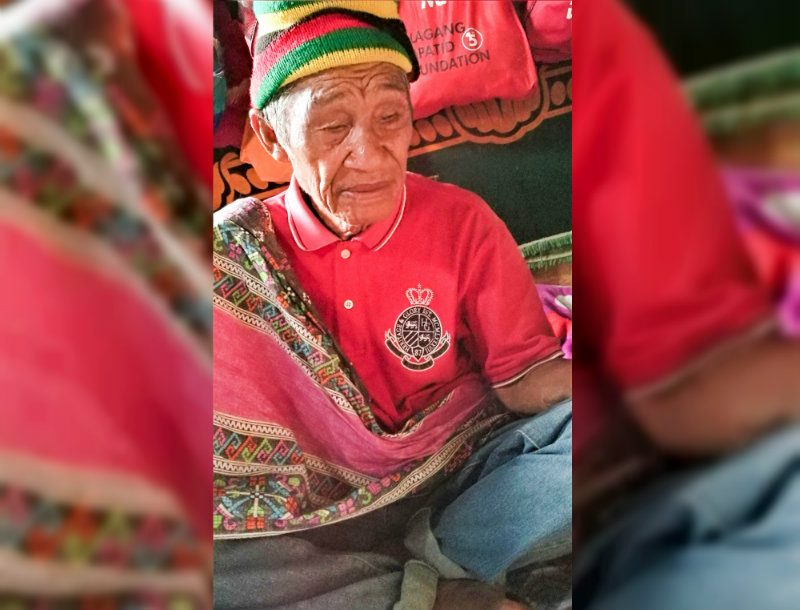
MANILA, Philippines – What would you do when life throws you several challenges?
Datu Mangontra Sultan slowly lost his eyesight in his 30s. When he was younger, he lost his right arm during a fishing accident. In May this year, he and his family were forced to leave their home when local terrorists attempted to take over Marawi City.
People who have met 95-year-old Sultan do not see him as a person with disabilities and an internally displaced person but as a strong and commited individual who wants to continue providing for his family.
Early in October, Jam Taha, a Project Development Officer II at the Department of Social Welfare and Development in the Northern Mindanao, saw a photo that went viral on social media. In the photo, Sultan is carrying a big sack of potatoes on his head. He is wearing a malong, which he uses to support another sack of potatoes.
As a DSWD employee based in Northern Mindanao, Taha is no stranger to heartbreaking and inspiring stories of resilience. But Sultan’s story stood out from all the other stories she has heard on the ground, she said.
“Naantig ako sa story. Kasi I’ve seen all kinds of IDPs na galing sa Marawi. Lahat sila may kanya-kanyang story at paghihirap. Pero si Datu, ‘yung natatangi [sa kanya], with all his disabilities plus vulnerable pa siya dahil senior citizen, nakita mo ‘yung hindi siya nag-give up,” Taha said.
(I was touched by his stories. I’ve seen all kinds of IDPs from Marawi. Each of them has his or her own unique story of hardship. But what is unique about Datu is despite his disabilities, plus he’s vulnerable sicne he’s a senior citizen, you can see that he never gives up.)
Inspired by his extraordinary story, Taha and colleague Charl John Flora decided to pay Sultan visit.
Finding Sultan
Ffinding Sultan proved to be difficult.
In an interview with Rappler, Taha shared that they managed to find Sultan after 4 tries. He lived in a far-flung farmland in Balo-i town in Lanao del Norte, and the DSWD workers walked for an hour to reach him.
“The purpose of our search for him is to gather basic information,” Taha said in Filipino. Sultan lived with his sixth wife and their two children – a 13-year-old daughter and an 11-year-old son.
They lived in a modest hut that had no ceiling. It’s roof was a tarpaulin that hung above the house.
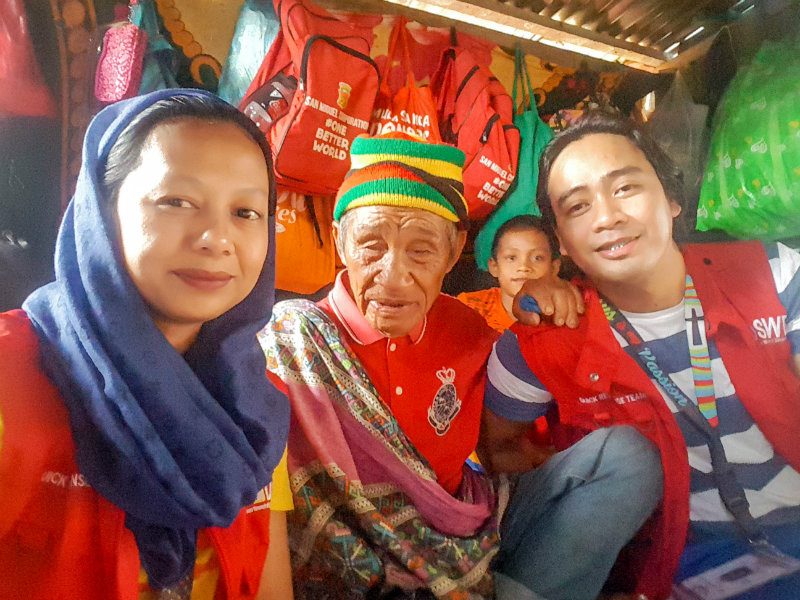
During Taha’s brief visit, Sultan shared how they ended up in that hut. His family first hid in the neighbor’s house. A week into the siege, when they realized that the fighting would not end any time soon, Sultan’s family began the long walk from Basak, Malutlut in Marawi City to Balo-i.
Since they ended up in a farmland, the 95-year-old father found an opportunity to make a living for his family.
No charity
Sultan does not believe in charity.
“He does not want to beg for money to support his family. That is why, despite his age, he is working hard to sell potatoes on the street,” Taha said.
In the absence of capital to start his own business, Sultan helped sell the daily harvest of fishermen and farmers back in Marawi City. The fishermen and farmers then paid him a small portion of the sales in return.
In Balo-i, Sultan harvested the leftover potatoes from the farmland. Along with his son, they would clean them and sell the potatoes on the streets.
Sultan is one of the 7 to 8 million senior citizens in the country. According to DSWD, an estimated 5.5 million senior citizens are indigent.
Taha believed that Sultan does not want to be considered weak and incapable. “For him, the disabilites are not a curse. The disabilities did not stop him from working hard,” she said.
Intervention
Taha said they recommended Sultan to the DSWD regional office in ARMM for the agency’s Social Pension Program for Indigent Senior Citizens (SPISC).
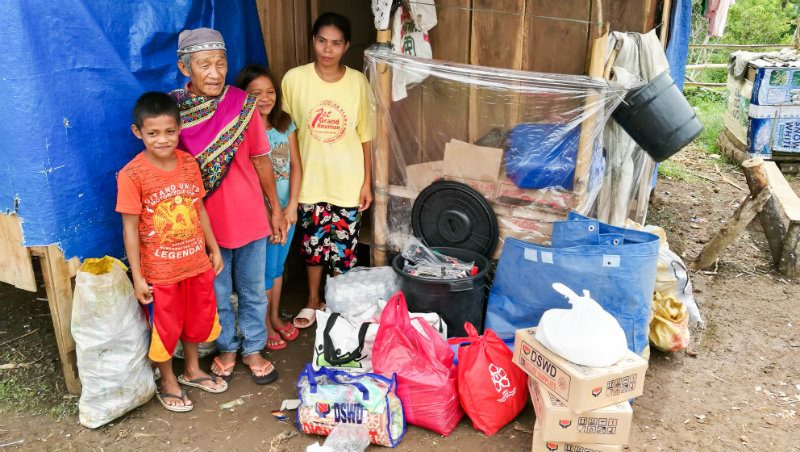
They also consulted Sultan and his family if they want to be transferred to an evacuation site in the center of the city where they would be given a room. Sultan can continue selling potatoes in a nearby market.
“We will transfer him because we cannot stop him if he wants to continue selling to provide for his family. We will tranfer him to the city center so they will have access to the health center, market, and the DSWD office,” Taha said in Filipino.
More than being relocated to an area with humane living conditions, Sultan said he wants to go home to Marawi City.
When asked what he wants as soon as he returns to Marawi, Sultan made a simple request – a small amount of capital to start a business.
Marawi, considered the Muslim capital of the largely Catholic Philippines, has been reduced to a ghost town following the clashes between government troops and terrorist groups linked with the Islamic State (ISIS). (IN PHOTOS: Death and destruction in Banggolo, heart of Marawi)
According to the latest DSWD figures, around 78,466 families or 359,680 persons have been displaced by the armed conflict. (READ: Marawi children need our help)
While President Rodrigo Duterte has declared Marawi City liberated from terrorist influence, the rebuilding Marawi is expected to take years. – Rappler.com
Add a comment
How does this make you feel?





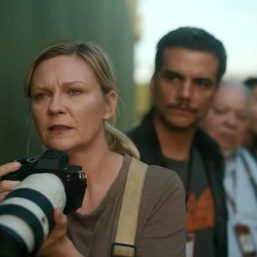
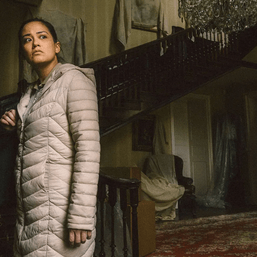







There are no comments yet. Add your comment to start the conversation.